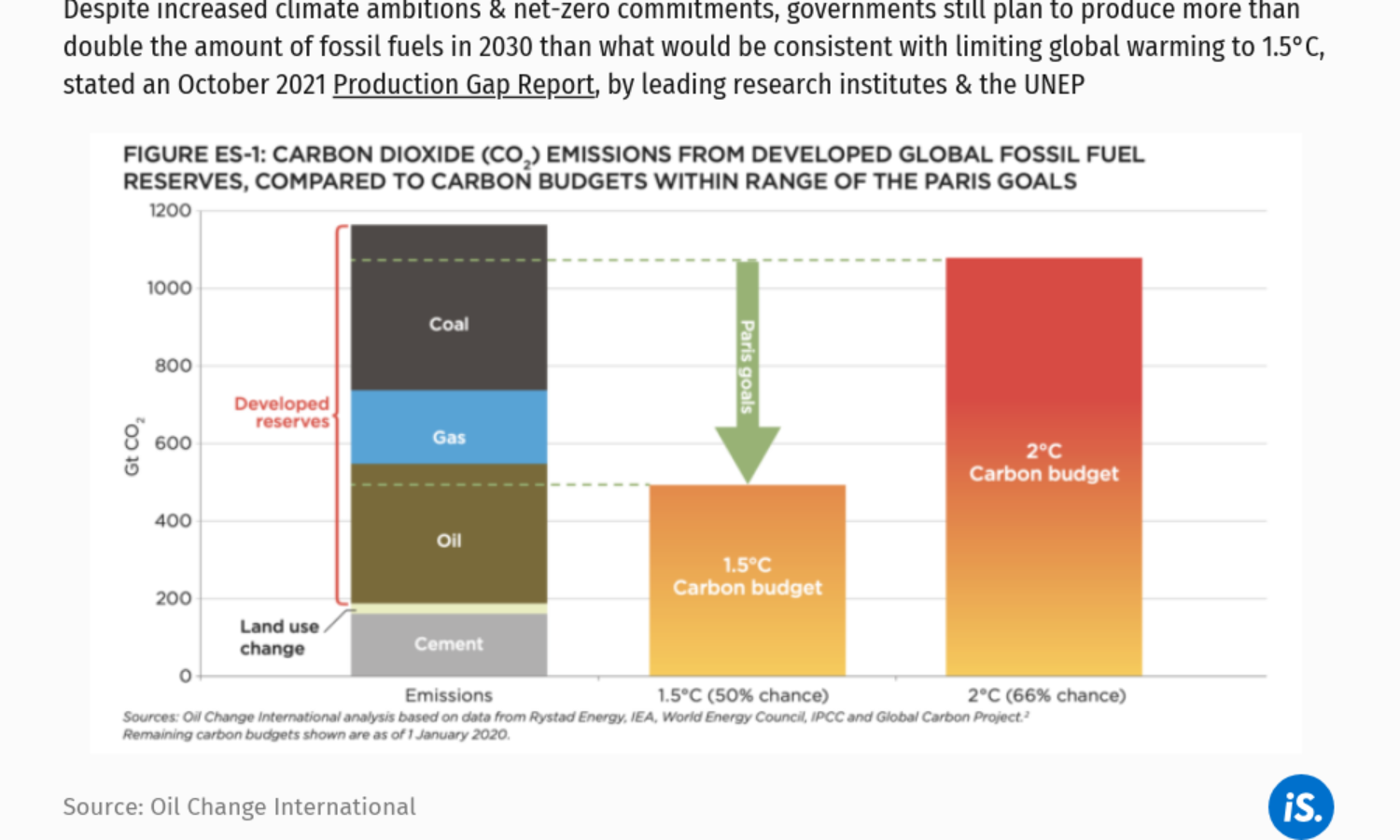COP26: Just Transition Away From Fossil Fuels
Coal is the dirtiest fossil fuel and the single largest cause of global temperature rise to date.

Burning coal has accounted for 0.3°C of the roughly 1°C rise since pre-industrial times. Natural gas also emits methane which has global warming potential 25 times higher than that of carbon dioxide. As of now, limiting warming to 1.5°C could require developing no new oil, gas or coal fields.
By 2024, global demand for natural gas is estimated to increase by 7% from pre-Covid-19, 2019 levels, largely because countries such as India are promoting gas as a transition fuel to replace the more polluting coal and oil in sectors such as electricity generation, industry and transport.
Some 70% of India's energy demand is met by two fossil-fuels--coal (44%) and oil (25%), which India will have to significantly reduce over the next decades.
Over 21 million Indians depend on the fossil fuel economy for their livelihood. Experts suggest that as India accelerates its climate action, its focus should be on just transition, including economic restructuring, workforce reskilling, land repurposing, revenue substitution and responsible social practices.
Relevant COP26 commitments:
- Glasgow Financial Alliance for Net Zero (GFANZ): 450 financial institutions in 45 countries said they would invest $130 trillion towards net-zero emissions over the next three decades
- Joint statement on ending international public finance for fossil fuels by 2022: The UK, US and over 20 other countries and financial institutions said they would prioritise public finance for clean energy instead. India is not a part of this.
- 'Coal to Clean Power Transition' statement: 42 countries and 32 companies have signed COP26 president Alok Sharma's call to end new coal plants and for a just and inclusive transition to clean energy for communities. But the US, China, India & Australia have not signed it.
We welcome feedback. Please write to respond@indiaspend.org. We reserve the right to edit responses for language and grammar.


